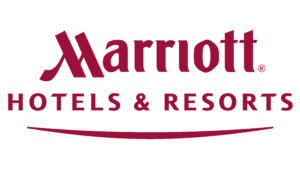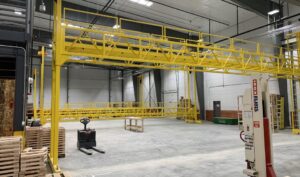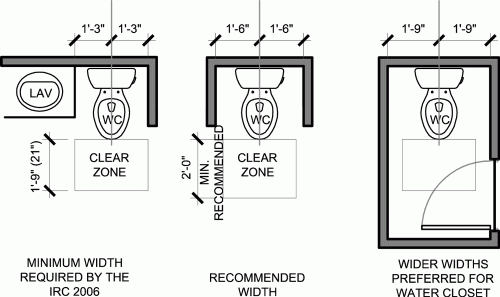The hospitality industry is continuously evolving, driven by changing guest expectations, technological advancements, and sustainability concerns. In recent years, several design trends have emerged, transforming how hotels and other hospitality spaces are conceptualized and built. This report explores these trends as of 2024.

1. Modular Construction
Firstly, modular construction has gained significant traction in the hospitality sector. This method involves constructing building components off-site in a controlled environment, which are then transported and assembled on-site.
Advantages of Modular Construction:
- Speed and Efficiency: Modular construction significantly reduces build time. Hotels can open sooner, generating revenue quicker.
- Quality Control: Building in a controlled environment ensures higher quality and precision.
- Sustainability: This method reduces waste and energy usage, aligning with the industry’s push towards sustainability.
- Flexibility: Modular components can be customized to fit various design aesthetics and functional requirements.
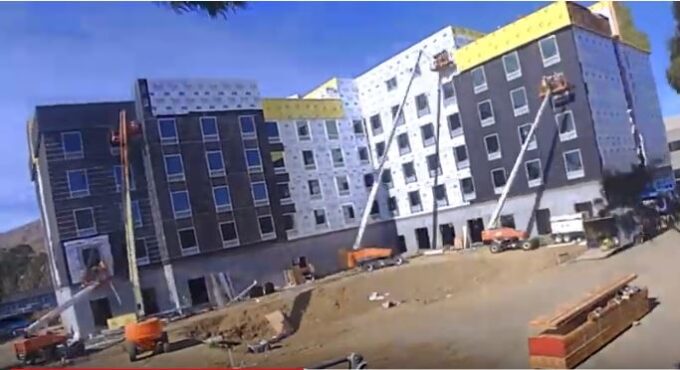
2. Sustainable Design
Secondly, sustainability is a critical concern for modern hospitality design. Hotels are adopting eco-friendly practices to reduce their environmental footprint.
Key Sustainable Practices:
- Energy Efficiency: Incorporating solar panels, energy-efficient lighting, and HVAC systems.
- Water Conservation: Implementing low-flow fixtures and water recycling systems.
- Material Selection: Using recycled and locally sourced materials.
- Waste Management: Enhancing waste reduction and recycling programs.
These practices not only appeal to environmentally conscious guests but also reduce operational costs.
3. Technology Integration
Next, technology is reshaping the guest experience in the hospitality industry. From check-in to room service, technology enhances convenience and personalization.
Technological Innovations:
- Smart Rooms: Rooms equipped with IoT devices allow guests to control lighting, temperature, and entertainment systems via their smartphones.
- AI and Chatbots: AI-powered chatbots provide instant customer service, handling requests and queries efficiently.
- Mobile Solutions: Mobile check-in/check-out and digital room keys streamline the guest experience.
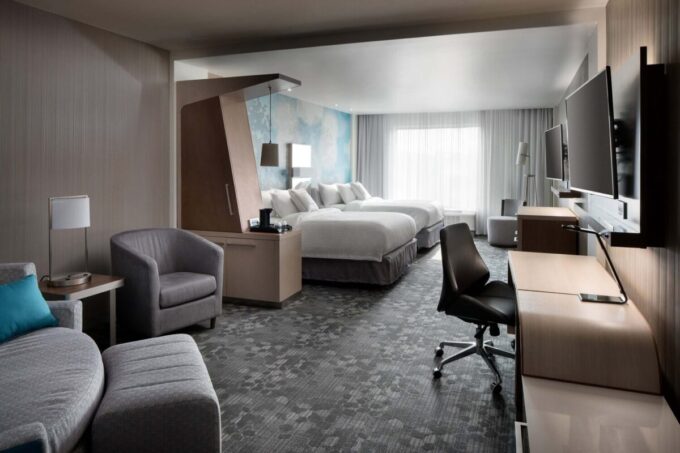
4. Biophilic Design
Furthermore, biophilic design, which incorporates natural elements into the built environment, is gaining popularity. This design trend aims to create a connection with nature, enhancing guest well-being.
Elements of Biophilic Design:
- Natural Materials: Using wood, stone, and other natural materials.
- Indoor Greenery: Incorporating plants and living walls.
- Natural Light: Maximizing natural light through large windows and skylights.
Biophilic design not only enhances aesthetic appeal but also promotes a calming and rejuvenating atmosphere for guests.
5. Multifunctional Spaces
Finally, hotels are increasingly designing multifunctional spaces to cater to diverse guest needs. These spaces can serve as work areas, social hubs, and relaxation zones.
Features of Multifunctional Spaces:
- Flexible Furniture: Furniture that can be easily rearranged or transformed for different purposes.
- Tech-Enabled Workspaces: Providing power outlets, high-speed internet, and meeting facilities.
- Community Areas: Creating areas for social interaction, such as lounges and co-working spaces.
Multifunctional spaces offer flexibility, making hotels more adaptable to changing guest preferences and market demands.
Conclusion
In conclusion, the hospitality design landscape is dynamic, shaped by emerging trends such as modular construction, sustainability, technology integration, biophilic design, and multifunctional spaces. These trends not only meet contemporary guest expectations but also enhance operational efficiency and sustainability. By staying abreast of these trends, hospitality businesses can create innovative, appealing, and future-proof environments.
For further insights and detailed case studies on these trends, industry professionals, like our expert team at EVstudio are happy to consult. In addition, staying abreast of ongoing trends in specialized publications and by attending design conferences will keep you up to date. Staying informed and adaptable is key to success in the ever-evolving hospitality industry.


